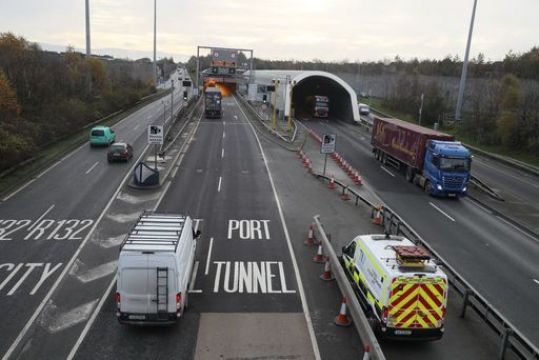It looks like a no-deal Brexit is on the cards as talks rumble on with little or no progress despite both sides' renewed commitment to "go the extra mile" to reach an agreement.
Much has been made of the economic impact that a lack of a trade deal between the UK and the EU would have, but how would a no-deal Brexit affect the average Irish consumer?
Online shopping
Online purchases from the UK will cost more after Brexit, and this could be worse in the event of a no-deal Brexit.
There will be no additional import charges for purchases of €22 or less, and VAT will be applicable to purchases above €22.
Shipping, delivery, insurance and handling charges will be included to determine that sum.
People have also been told to remember that their EU consumer rights will no longer automatically apply when making purchases from the UK.
Doireann Sweeney, from the Competition and Consumer Protection Commission, said: “Right now you have strong EU consumer rights when you buy from a UK website, but come January 1st you will no longer automatically have these rights.
“This is important as EU law guarantees that you can return a purchase and it provides you with important protections if something goes wrong, for example, if something doesn't get delivered.”
Amazon recently warned Irish customers of price hikes due to Brexit. The company sent an email warning people that they will be liable for returns charges unless goods are faulty.
It said: “Otherwise, any costs incurred for the return including transport costs, as well as any associated import fees of customs, will be payable by the person returning the goods.”
Day-to-day shopping

A no-deal scenario could lead to a significant rise in the price of your grocery shop.
Tariffs would be imposed on many food items entering Ireland from the UK in the absence of a trade deal.
Cereals, meats, processed foods, chocolate and other items would be subject to these import charges.
There may be a delay in the delivery of some items but most shops have been preparing for this by preparing surplus stocks of groceries.
Certain items, such as ready-made meals, may be temporarily impacted.
A recent ESRI report found that prices would rise by between two and three per cent in the event of a no-deal Brexit, which would mean a cost of living increase between €892 and €1,360 per annum for Irish families.
The report also found that households with lower income would be disproportionately affected.
The worst case scenario would see less well off households hit with a four per cent increase in cost of living.
One of the report’s authors, Martina Lawless, commented: “As Ireland imports a considerable amount of food products from the UK, a hard Brexit could have an immediate impact on the cost of living. Unfortunately, we find that this impact would likely fall disproportionately on lower-income households.”
Traffic at ports and knock-on effect
Special plans have been made by Government to address post-Brexit traffic congestion at ports but people have been told to expect delays from January 1st.
There will be a hierarchy of interventions by relevant agencies based on the level of congestion impacting on Dublin Port, the Port Tunnel, city roads and M50/M1, which includes:
- Enhanced traffic spacing at the northern Dublin Port Tunnel entrance.
- A queue management system for Heavy Goods Vehicles (HGVs) on M50 Northbound approach to M1/M50 Junction and on M1 southbound.
- Additional HGV parking capacity at motorway service areas on the M1 (both northbound & southbound).
- Off-line Emergency HGV Parking.
- Assistance of An Garda Siochána and motorway service operators.
The worst queues will be at UK ports like Dover as vehicles travel on the way to continental Europe.
This would also apply in Irish ports where additional checks will be needed in the event of a no-deal Brexit. This would have a knock-on effect for main routes such as the M50.
One source told The Irish Times: “If there are delays in France, you’ll see it sooner or later on the M50 at Finglas.”
Travel
The Irish and UK governments have signed a Memorandum of Understanding protecting the Common Travel Area (CTA) which allows Irish citizens to freely travel to Britain.
Flights and direct ferry services between Ireland and the UK will continue whether a Brexit trade deal is agreed or not.
When travelling to the UK on an EU airline, passenger protections in the event of delays or cancellations will still apply.
There are currently no roaming charges for Irish people visiting the UK, it remains to be seen if this will remain intact in the event of a no-deal Brexit.
Economic impact
The Government has estimated a three per cent drop in economic growth next year if a Brexit trade deal is not agreed.
However, Budget 2021 was designed with no-deal in mind. The drop in exports to the UK will amount to around €10.5 billion and the Irish Fiscal Advisory Council has predicted that the long-term cost could be twice this.
The Department of Agriculture has predicted job losses will be mainly confined to the agrifood and manufacturing sectors.







